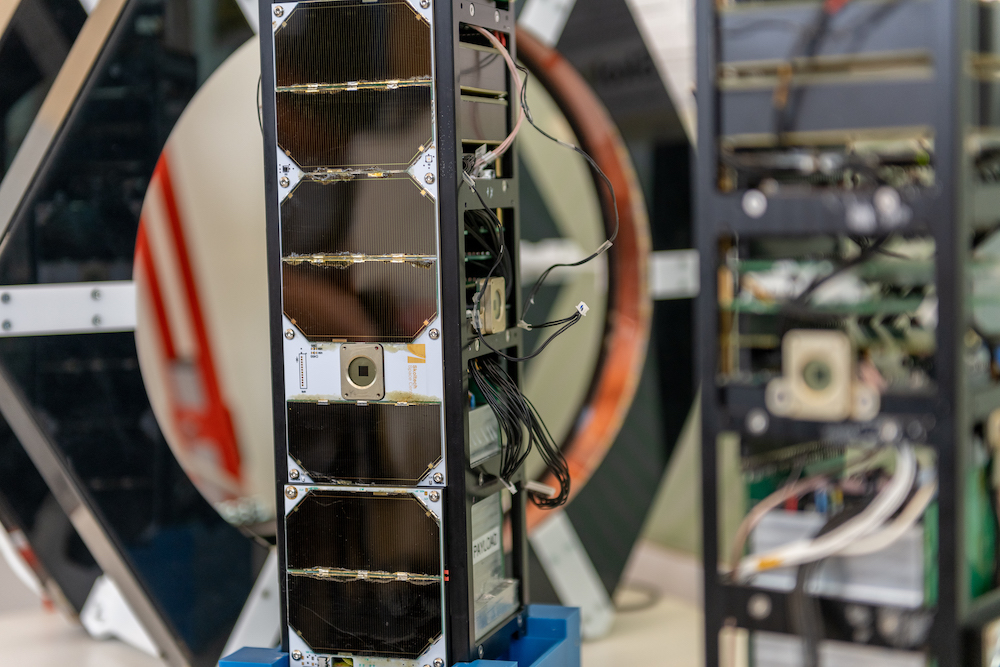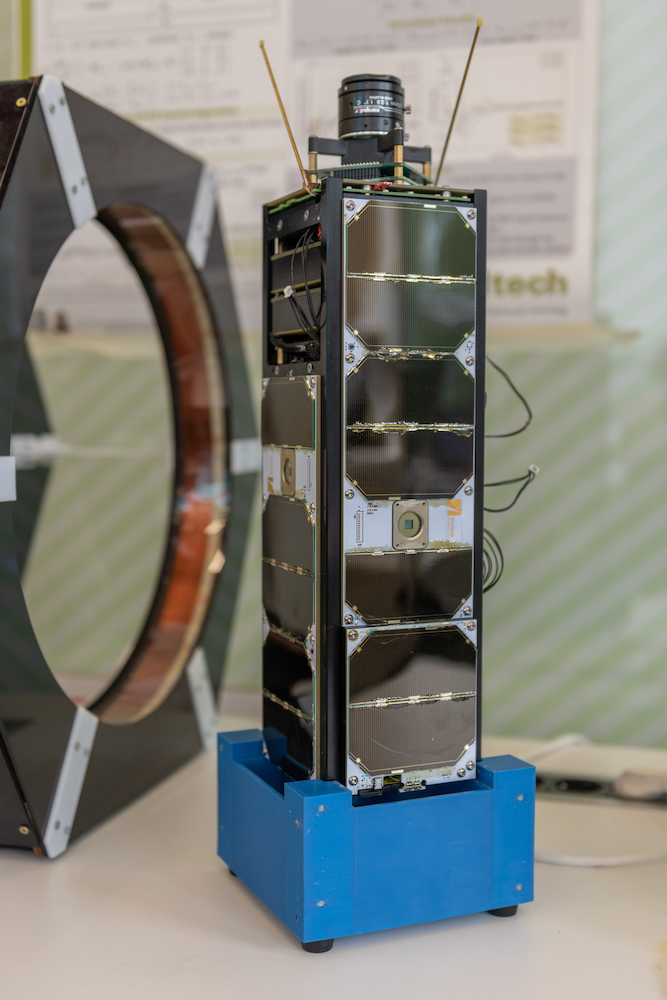Moscow, August 11. Two satellites, Skoltech B1 and Skoltech B2, developed by the Skolkovo Institute of Science and Technology (Skoltech), have successfully reached Earth’s orbit. They were launched from Baikonur on August 9, 2022 at 10:52 a.m. local time (08:52 a.m. Moscow time).
The Soyuz-2.1b launcher with the Fregat upper stage carried 16 Space-π satellites, including Skoltech’s 3U+ CubeSats, B1 and B2, which will be used to test and enhance the inter-satellite communication capability, confirm the choice of the engineering solutions and demonstrate that the satellites can communicate with each other at a long distance without human intervention. If this mission is successful, the next step will be to test inter-satellite communications within a swarm of four satellites.
“A satellite is a complex engineering system created through systematic and well-coordinated teamwork. Launching university CubeSats for research purposes makes this mission quite special. Right now, we have several tasks at hand: test the inter-satellite communication system, register and collect data on gamma-ray flashes, and spark interest for space activities among schoolchildren. In fact, what we are doing is largely for their sake,” Dmitry Ris, an engineer at the Skoltech Center for Digital Engineering, says.
On the night of August 10, the satellites downlinked the first data, confirming that the battery, solar panels, transmitter and positioning system are functioning properly. Over the next two weeks, the team will thoroughly analyze telemetry data and identify the optimal satellite operation parameters.
The CubeSats were developed by the Skoltech Center for Digital Engineering as part of the FASIE-supported Space-π project. Each satellite is equipped with three types of payload: inter-satellite communication equipment, gamma-ray detectors developed by MSU Skobeltsyn Institute of Nuclear Physics (SINP), and cameras.
“We at Skoltech developed the satellite platform that we will be testing for several months, while teaching the CubeSats to communicate with each other without human involvement. If all goes according to plan, we will have the first ever software enabling communication and joint operation of satellites,” Dmitry adds.
The launch was provided by Glavkosmos. Once in orbit, the satellites were separated from the launcher using four deployers designed and manufactured by Aerospace Capital in Russia.
The mission of the Skoltech Center for Digital Engineering is to establish advanced engineering systems expertise at Skoltech, spanning the entire digital lifecycle from conception to operations, with a focus on systems engineering and systems modeling with applications in robotics and space.
The Space-π project aims to help school students from across Russia to perform space experiments, create tasks for payloads, develop service systems, receive, process and use orbit data for research and education. The project is actively supported by the Foundation for Assistance to Small Innovative Enterprises (FASIE).
Glavkosmos, a daughter company of Roscosmos, engages in foreign economic activity with regard to rocket and space technology and supports R&D operations, including space technology projects.
Aerospace Capital develops and manufactures separation systems for CubeSats.
Contact information:
Skoltech Communications
+7 (495) 280 14 81



